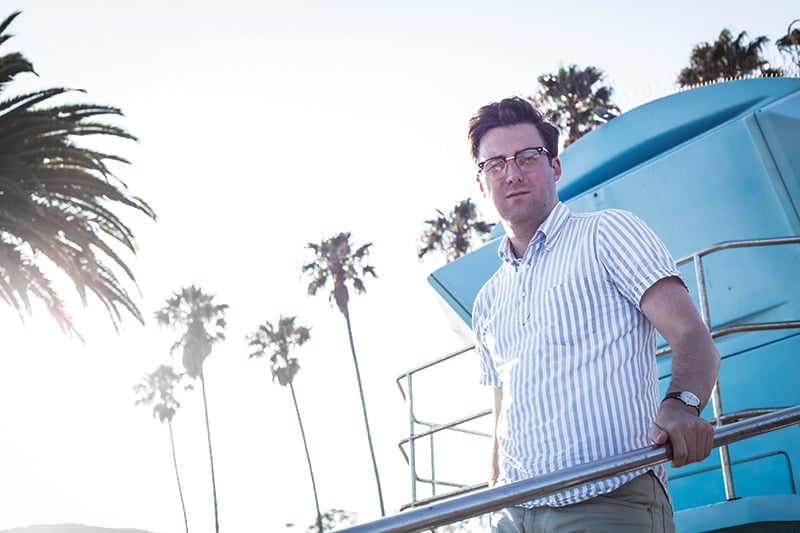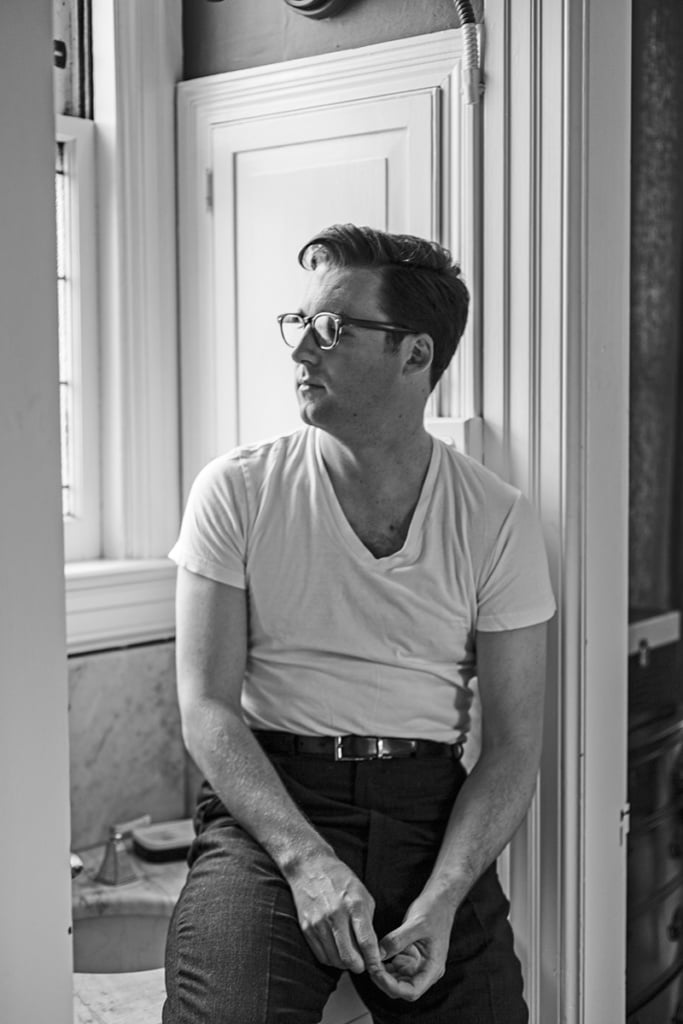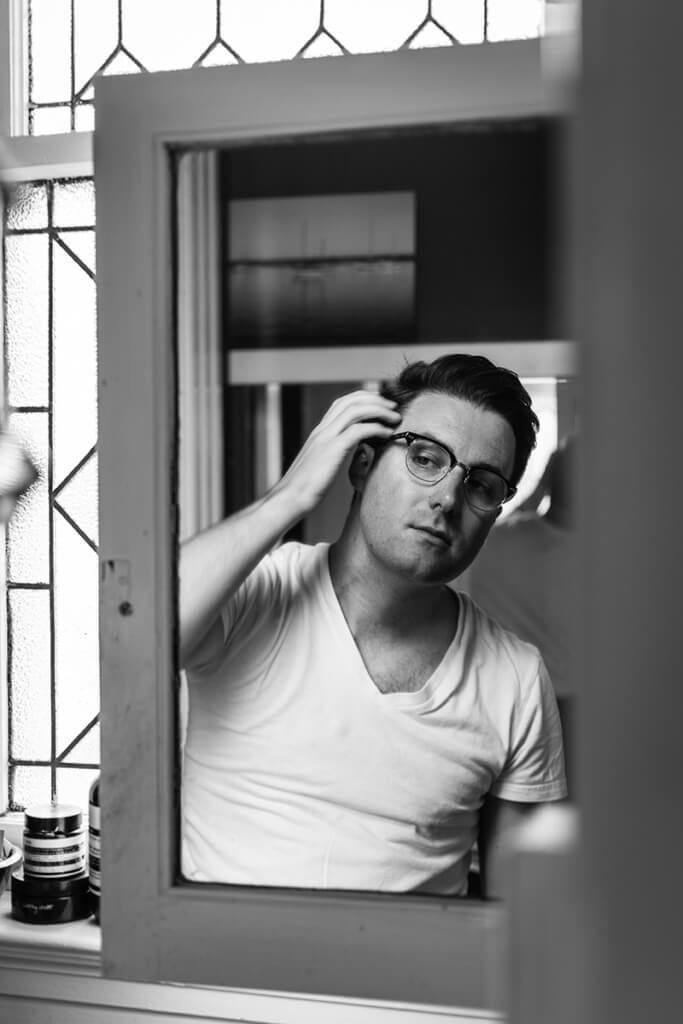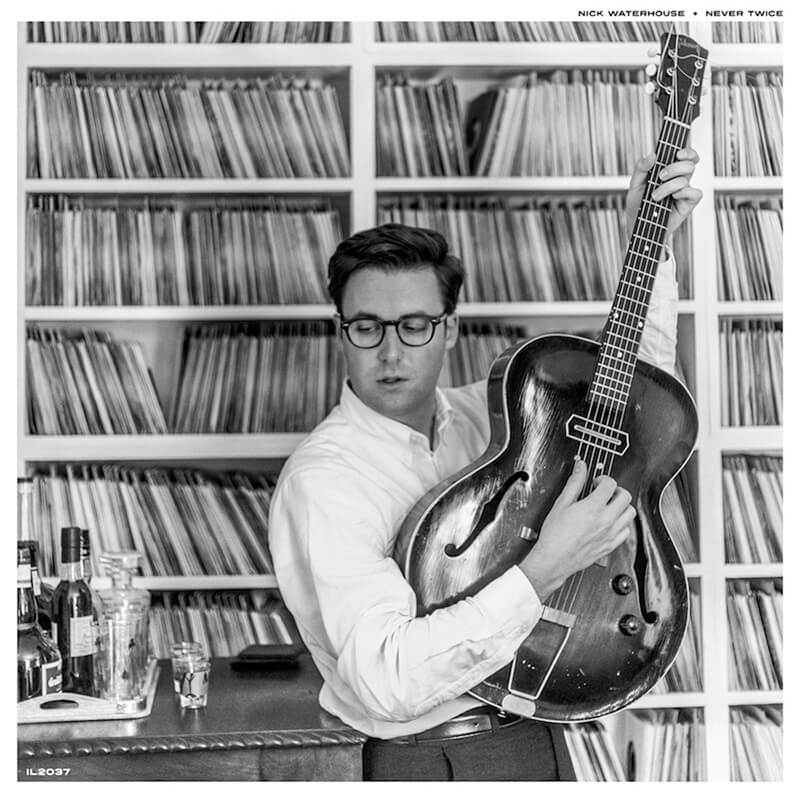Nick Waterhouse Explains How a DJ Background Prepared Him For Ground-Level Fan Interaction and New LP Never Twice
Music is spirit.
It’s the culmination of life’s sounds and smells wrapped up in all of the ups and downs, resting atop a groove. Good music remains timeless, with songs that spark nostalgia, ease heartache or act as the soundtrack for an epic night out.
Nick Waterhouse, a California based guitarist and singer whose music is rooted in rhythm and blues and jazz, knows how to do just that. His music takes a deep, respectful bow to the past while meshing it with the new to create effortlessly classic tunes.
Over the last few years, Waterhouse has taken the threads of his life and woven them into his forthcoming album, Never Twice, which will be released on Sept. 30. “I feel like this record was influenced a lot by the changes in my life. Moving from L.A. to San Francisco, the layers and the textures I’ve encountered. My exposure to things,” he shares.
As a result, his songs are a little less Ray Charles and more diverse in sound. Waterhouse enlisted different soloists and players for the recording and reconnected with his old engineer, Mike McHugh. McHugh—who has a long list of credits including Train’s “Drops of Jupiter” and The Growlers’ album Hung at Heart—helped shape the sound.
“We have a lot of history. We met when we were 15 years old,” says Waterhouse. Despite some challenges that arose with McHugh during the recording process, Waterhouse wouldn’t have had it any other way. He accepts and perhaps even embraces the not-so-easiness of life.

“It all goes into the music,” he claims.
Waterhouse has always been a lover of music. He worked as a vinyl D.J. for almost four years before he assembled some local musicians to cut a 45 record of his howl-fueled single “Some Place.” The immediate success of the single led to a number of gigs and later, his 2012 LP, Time’s All Gone.
His first gig as a D.J. at Edinburgh Castle, a Scottish bar in San Francisco, was pretty magical, as he recalls. “It was a back room party where you could smoke,” says Waterhouse. Before he was of age, he used to sneak in to the venue and dance.
The years he spent as a D.J. prepared Waterhouse for life as a singer and performer. “After listening to so many records so closely, I have a profound, deep respect for them. But they’re records. It [being a DJ] makes music a social thing. It’s about being on the ground level and seeing how people react. As a singer, it’s the same.”
Before music, Waterhouse—who explains that there’s also a thread of the book, Humboldt’s Gift throughout his new record—got a degree in literature. The former Brooks Brothers employee, who is heralded by some as a style icon, fancied that he could make money after college with his degree in hand. “I thought I was doing the more responsible thing by getting a degree, but journalism and publishing are equally tenuous,” Waterhouse says.

Without a lucrative career path made easier by a degree in literature, he jumped into music with a guerrilla-like ferocity, and it’s paying off.
Just two years after his previous LP, Waterhouse released Holly (and no, it’s not about a girl), his second album on the Innovative Leisure label which houses a number of outstanding artists including BADBADNOTGOOD and Nosaj Thing.
But when does signing a record contract trump independence?
Waterhouse says, “Well, if you can write the check, then do it yourself. At a certain point, I lost several thousand dollars. [When I got signed] I got a humble recording budget, but it was a lot of money to me. The process is fragmented. Some people want a laptop. I want 12 players. You have to pay all the musicians and that doesn’t include the engineer or studio time. It’s like the difference between deciding to do a sculpture or a 3-D graphic. It’s created in a different way, [but] it’s all art. It’s about subsidizing getting your work done. The way people perceive the music business is different than other industries. Music is taken as a consumptive piece. There’s no incentive for a patron to pay the money to artists.”
Now that Waterhouse is settled in his career and with a new album on the way, it may appear that his life is picture-perfect. But every journey has its kinks. Waterhouse likes to do things his own way, and holding on to his creative vision is something that’s important. Battling over it, however, is draining.
“I’d say dealing with the reality of the business of commerce and art constantly creates a friction point that can manifest in many ways. I literally broke my teeth from grinding them. Every time I have to defend a creative decision [is a friction point]. When everyone who works with or for me tells me to get rid of horn players or singers, defending it [the decision] can feel Kafkaesque,” he explains.
His sensibilities, though sometimes contested, are spot-on and his songwriting rings of truth and fun. When working on songs, he tends to be a “big picture writer.” He says, “I have a lot stuff on reserve, like hooks or lyrics. I’m not mathematical with those things. ‘Sleeping Pills,’ on my second record felt like it wrote itself. There are others where I’ll sit on lyrics for a while. A lot of it is about rhythm and syncopation. It’s just got to feel good to me. I don’t sit down and tear out my hair.”

Waterhouse is patient with his art. He knows that if he waits, good things will come. “Attempting to create a routine scares my self-conscious,” Waterhouse shares. Besides, forcing it doesn’t mean one will end up saying anything worthwhile.
Outside of touring and recording—which he loves equally—Waterhouse likes to spend his free time in different cities just walking around, ducking into delis for sandwiches, hanging out with friends and his dog.
Recently, he shared a memorable night with John “The Chief” Seiter and his band in a basement in New York cutting tapes with an Ampex 351 machine Waterhouse likes. “It was unprofessional. It was pretty wild.” But the secret to the sound, Waterhouse says, is in the Ampex.
It’s clear from his choices—from clothing to his Gibson guitar to tape recorders— that Waterhouse is partial to the things of old and isn’t quick to follow the latest trends. “Trendiness is so exhausting,” he says. “I keep sharp on my own code. No need to copulate with the populace.”
It’s this need to go his own way, despite naysayers, that could keep Waterhouse busy making music that listeners are eager to hear for years to come. He won’t bend unless he wants to. “Every day is a fight. It’s just a different fight,” he explains.
If he listens “to the sound of the truth that God puts into us,” as author Saul Bellow’s character Charlie Citrine commands in Humboldt’s Gift, Waterhouse will continue to be the victor in his daily battles.
Nick Waterhouse – Never Twice
Standout Track: “It’s Time”
BUY NOW at Bandcamp
Follow on Twitter @nickwaterhouse
Photos by Erin Rambo

